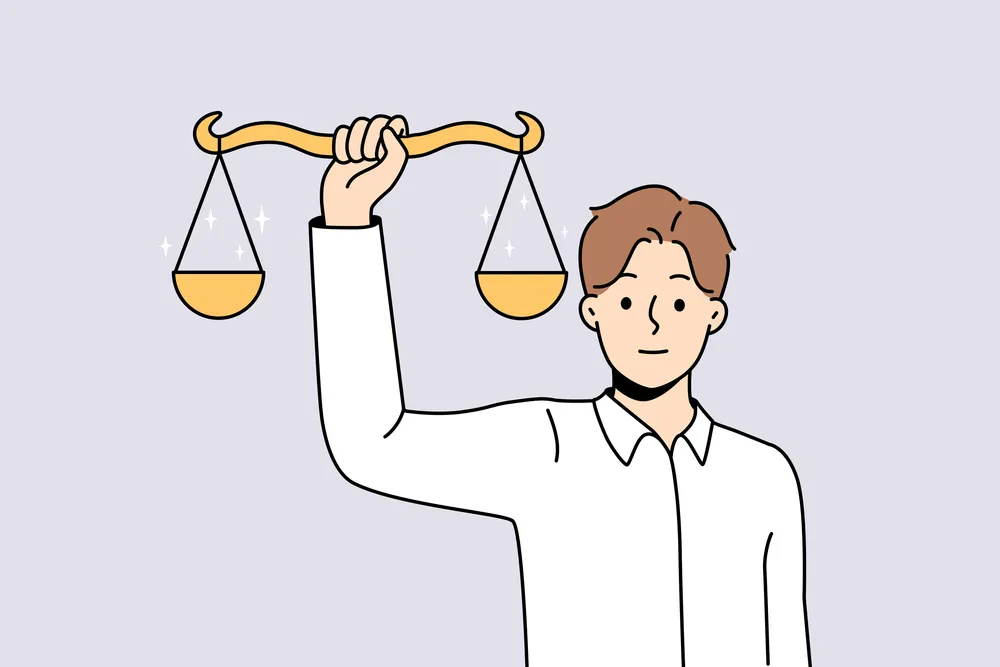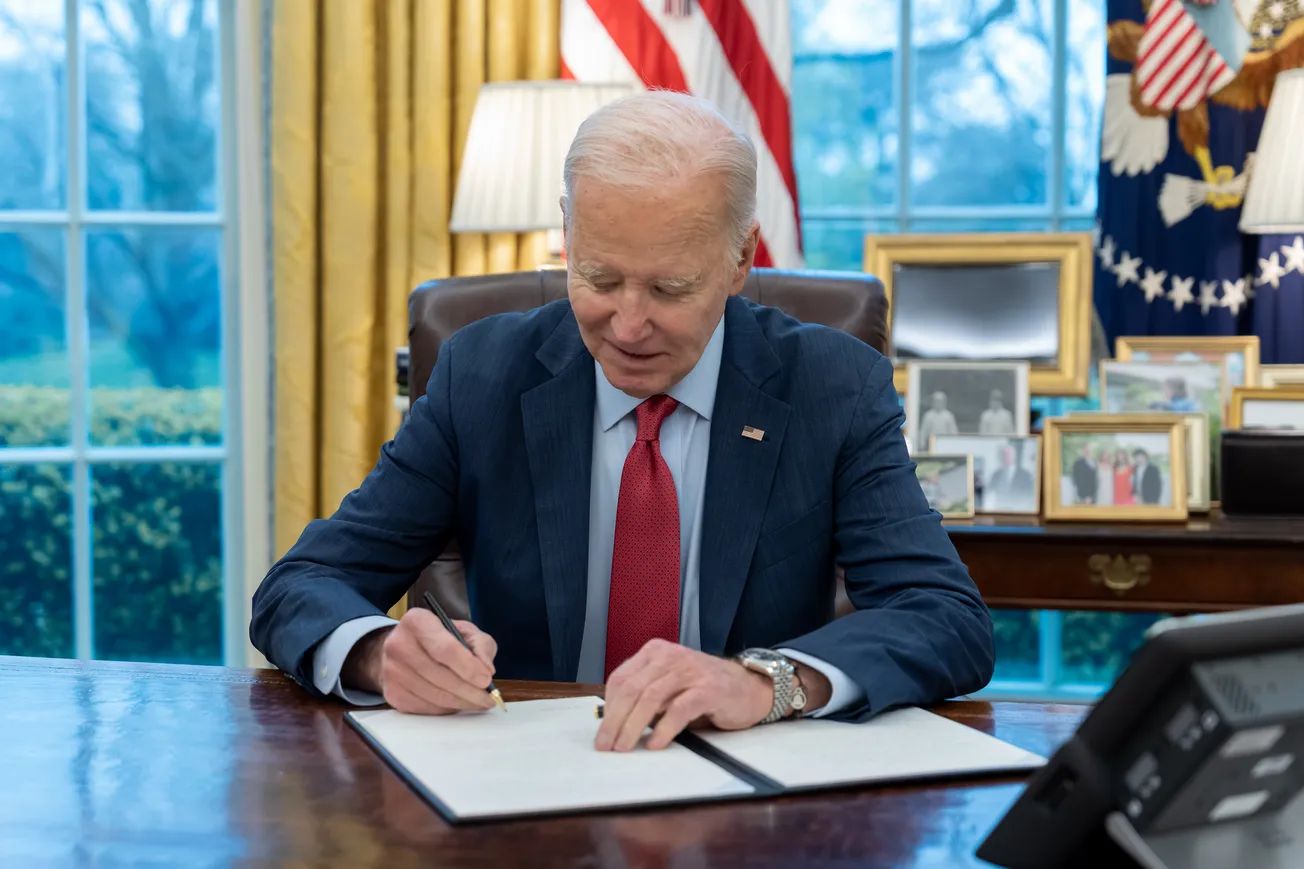It's one of the most cherished notions of American life that all of us should be treated equally by major public institutions, whether it's the Big Media, social media or the law, regardless of our individual religion, political beliefs, or cultural background. But, the latest I&I/TIPP Poll suggests, a surprisingly large number of Americans no longer feel that ideal is true.
Our January online poll taken from Jan. 4-6 of 1,356 adults asked, "Do you agree or disagree that people who hold similar political/religious/cultural ideas, beliefs, and values as you receive equal treatment in America." We asked them to answer the question for each of three major public institutions separately: the media, social media, and the law.
The margin of error was +/-2.8 percentage points.
For the media, including digital, print and television, 44% agreed that they felt equally treated by the media, versus 43% who said they didn't. Given the poll's margin of error, it's a virtual tie.
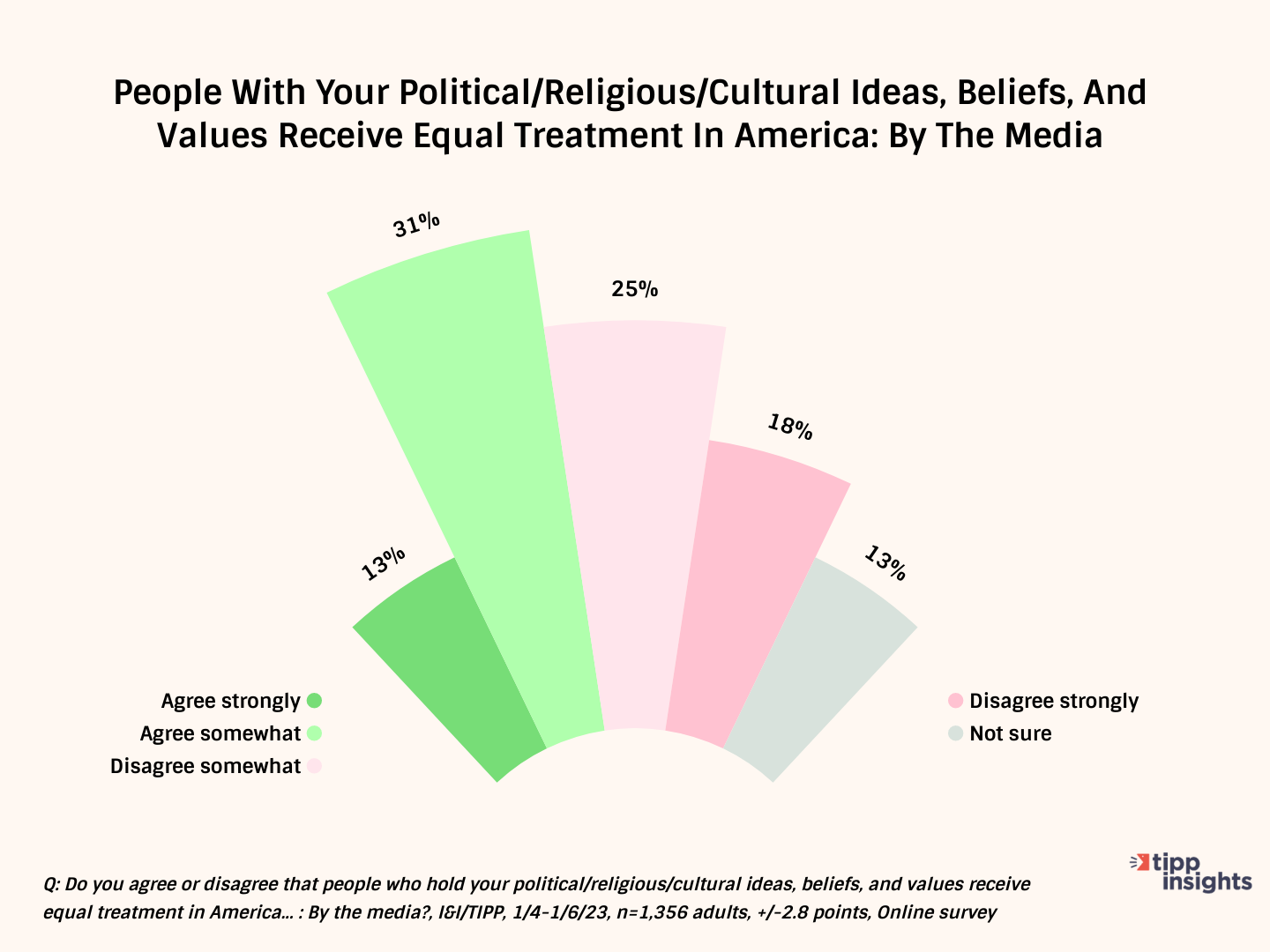
Social media companies, which have come under intense scrutiny in recent years, fared even worse. Just 38% of Americans said they felt fairly treated by social media, compared to 47% who said they didn't.
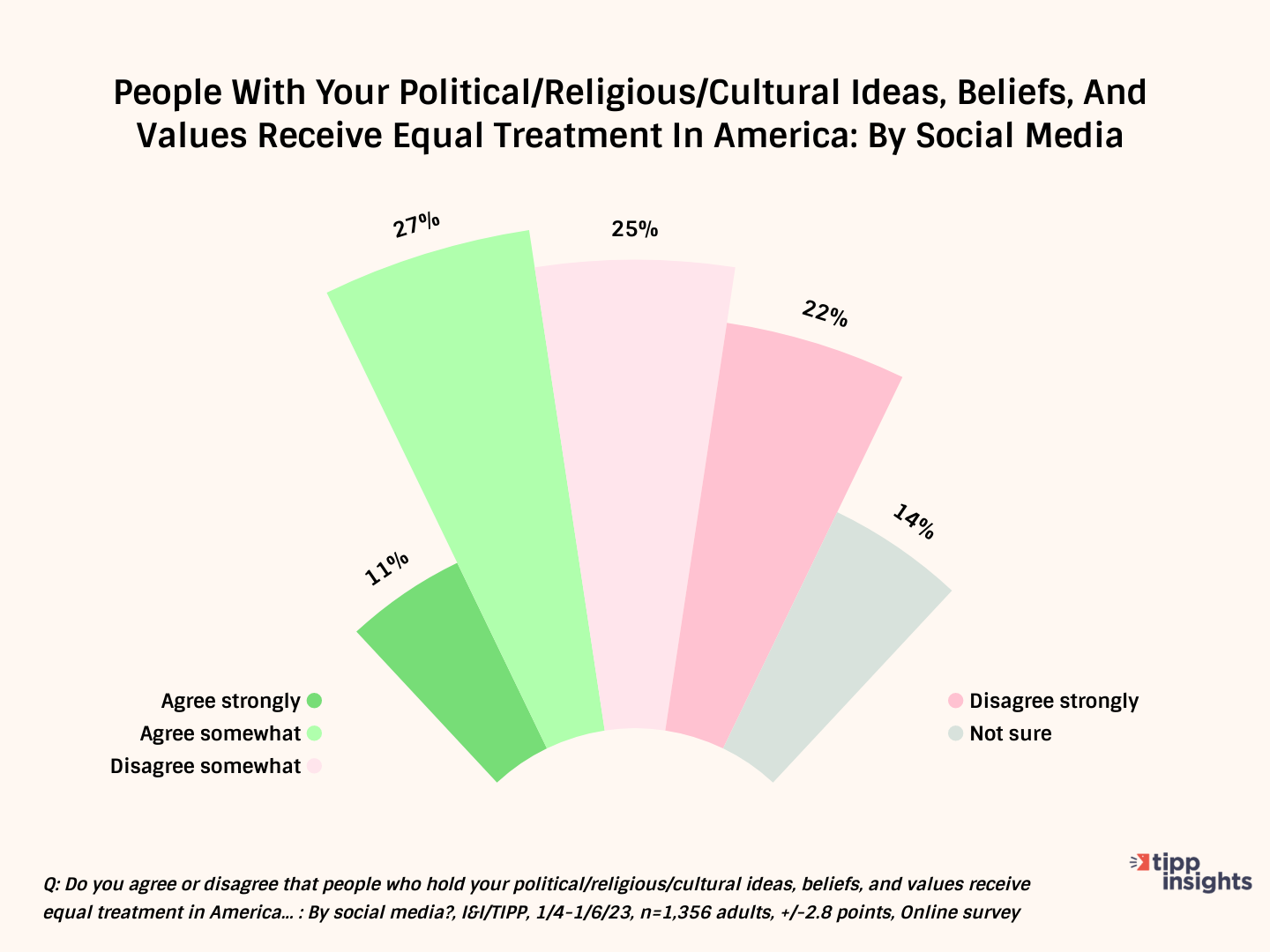
Only when the poll asked respondents about treatment "under the law" did a clear plurality emerge – 48% said they felt fairly treated, 38% said they didn't.
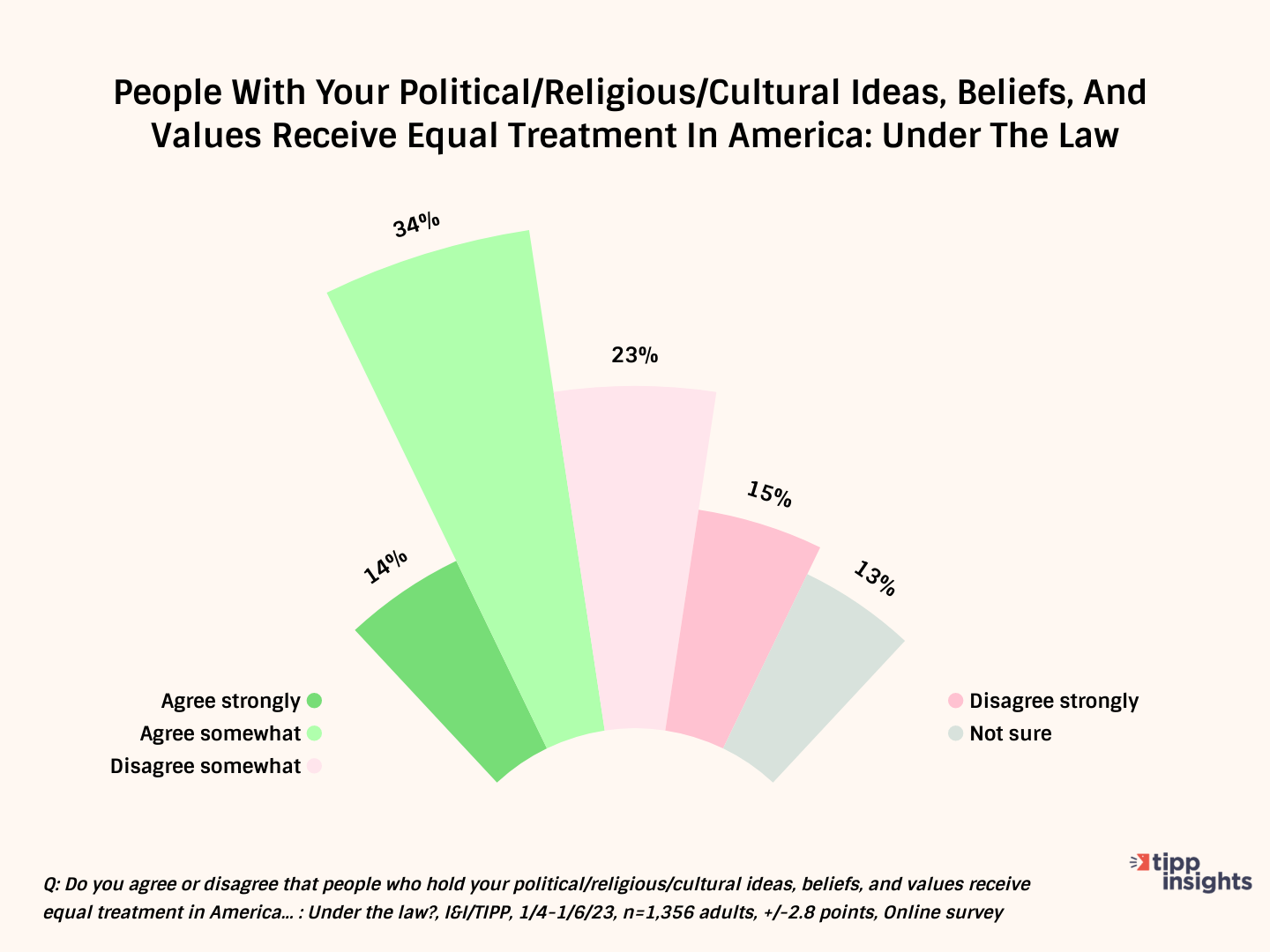
The bad news: None of the three questions showed a majority of Americans (51% or higher) saying they received equal treatment. But there were significant differences among groups, particularly by political affiliation and by race.
Race is by far the most intriguing result.
Contrary to what might be expected, a majority of both blacks and Hispanics felt others like them received fair treatment by the media (blacks 57%. Hispanics 54%), social media (blacks 51%, Hispanics 51%), and the law (blacks 51%, Hispanics 55%). Whites, by comparison were less than 50% on all three measures: the media (38%), social media (31%), and the law (46%).
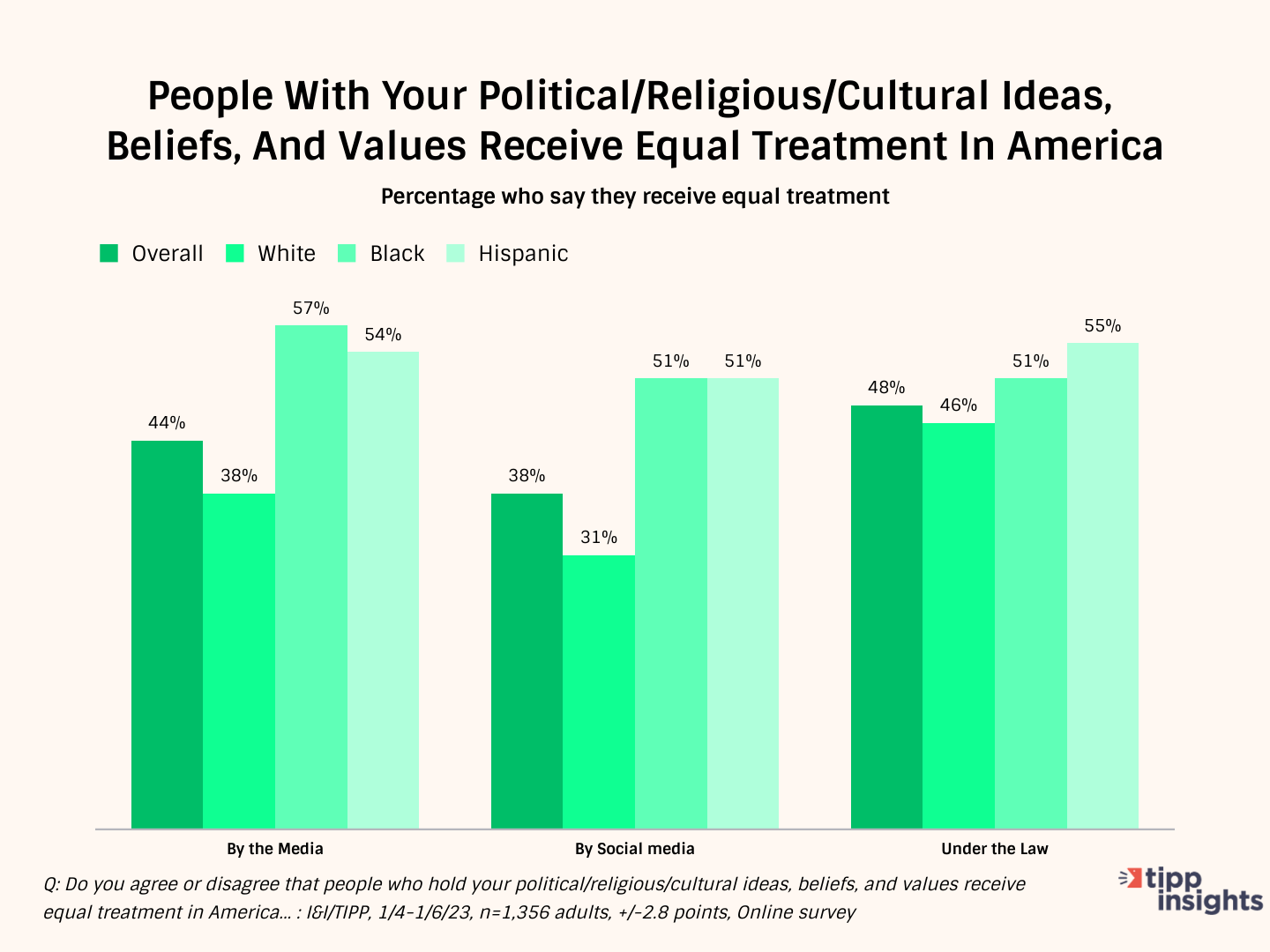
Perhaps the most aggrieved group of all the demographic breakouts was white women. Just 36% felt they got a fair shake from the media, while an even smaller share (29%) said they were treated fairly by social media. Slightly more, 41%, agreed they were treated fairly by the law.
The split was a bit more predictable by political affiliation.
For instance, Republicans (30%) and independents (38%) were significantly less likely to say they were fairly treated by the media than Democrats (59%), likely an outgrowth of non-Democrats' common complaint over the years of pervasive liberal bias in the mainstream media.
Perceptions of fair treatment by social media showed an even more pronounced political split: While a 51% majority of Democrats felt they were treated fairly, just 27% of Republicans and 30% of independents felt the same.
As for fair treatment under the law, there was still a gap, but responses were far closer: Again, a majority of Democrats (52%) felt fairly treated, compared to just 45% of Republicans and 43% of independents.
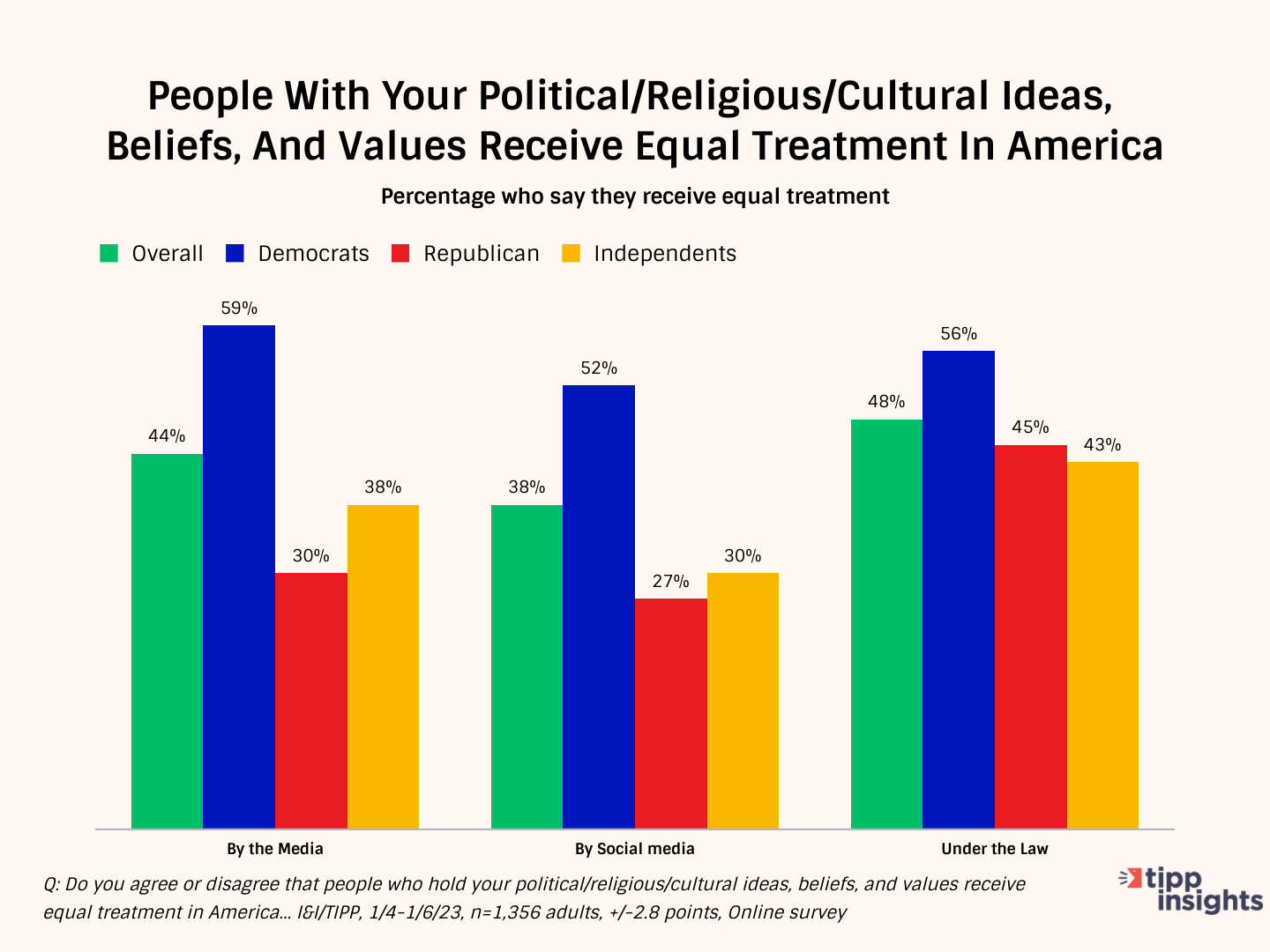
These data paint a complicated picture of how Americans view three key institutions in American life, the mainstream media, social media and the law.
It's not surprising, perhaps, that Republicans and independents are disaffected: Our own recent polls show trust in the media at or near record lows, serious concerns over how both the government and media have handled COVID and the angry aftermath of the 2020 election (especially the "Jan. 6" hearings), along with growing concern over a two-tier justice system, and a deepening divide among Americans on many political issues.
Much of this sense of "unfairness" arises from center-right voters believing that the "deck is stacked" against them, especially when it comes to American elections.
That's especially true in recent years, after radical new changes in state-level voting laws imposed during the COVID lockdowns struck many as intended to solidify one party's power over another.
Yet, the media have systematically shut down online discussion of possible election violations by Democrats, while state courts have routinely refused to hear legitimate challenges to questionable election results. This is why the results of our poll show what they do.
As one key example, tales of "Russian collusion" by Trump were given free rein by social media, but online conservative critics were cancelled when they pointed out that it was false. Thanks to Elon Musk's "Twitter Files," and similar revelations from Facebook, there can no longer be any doubt that social media worked to shut down both conservative and moderate voices.
But the fairness issue doesn't end there.
Democrats, in particular, have used the COVID era to push hard for mail-in ballots, universal voter registration, rank choice voting, making it easier for illegal immigrants and convicted felons to vote, ballot harvesting of votes by interest groups, requiring no voter ID at polls, continued use of "dark money" to influence elections, "early" voting, and a number of other proposals that conservative and centrist voters fear will further weaken our electoral system.
Fairness? In a recent Rasmussen poll, 57% said they thought the 2022 midterm elections were influenced by cheating, and a majority also felt that "voting by mail makes it easier to cheat." Is it any surprise that only a minority of Americans now think major media and the law, which largely ignored or minimized legitimate charges of cheating and voter fraud, don't treat them fairly.
Concerns that the influential and pervasive "woke" and "cancel" cultures that seek to replace issues of fundamental fairness with personal identity as the basis for American culture and political life, further undermine Americans' sense of basic fairness.
I&I/TIPP publishes timely, unique and informative data each month on topics of public interest. TIPP reputation for polling excellence comes from being the most accurate pollster for the past five presidential elections.
Terry Jones is an editor of Issues & Insights. His four decades of journalism experience include serving as national issues editor, economics editor, and editorial page editor for Investor’s Business Daily.
Please email editor-tippinsights@technometrica.com

